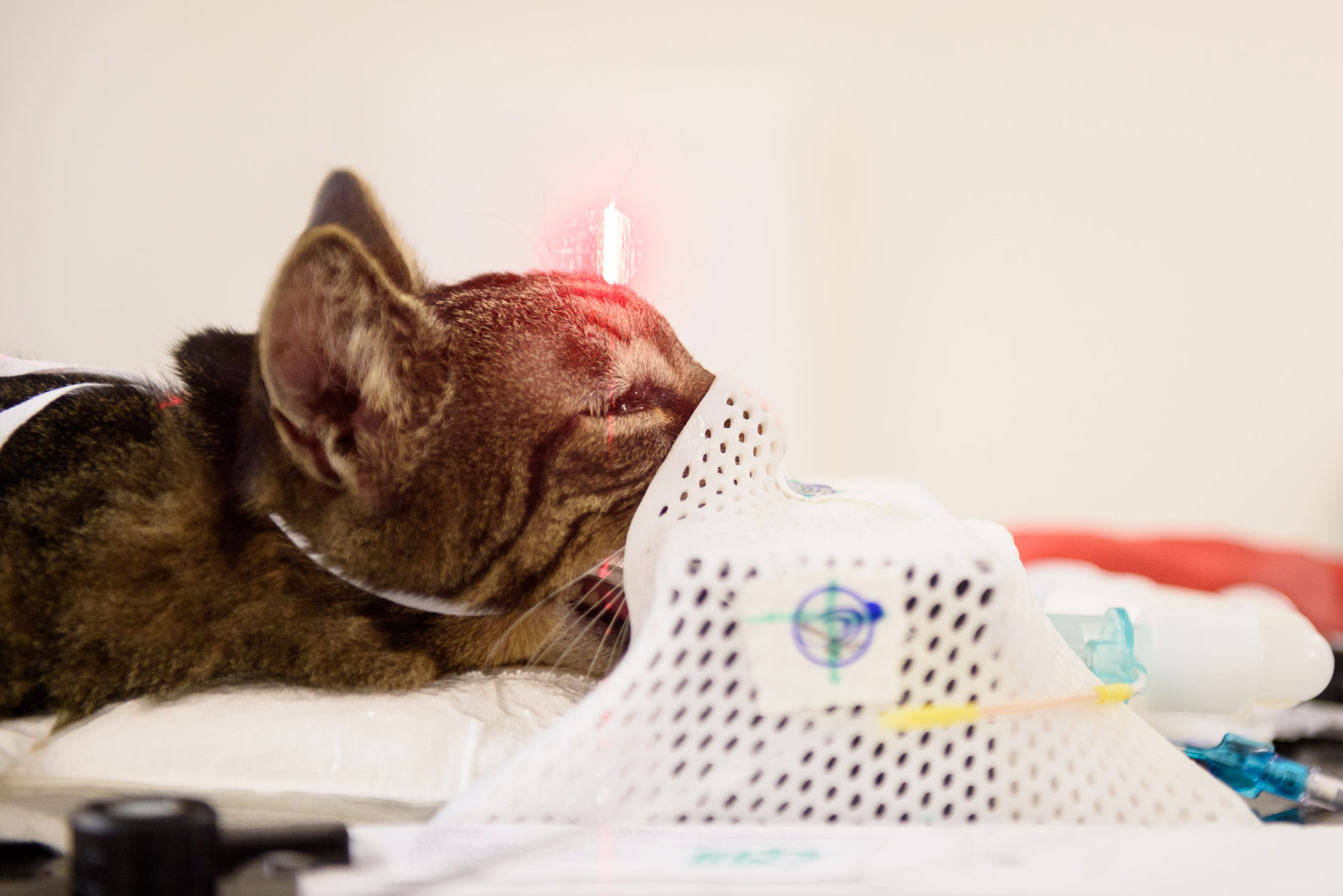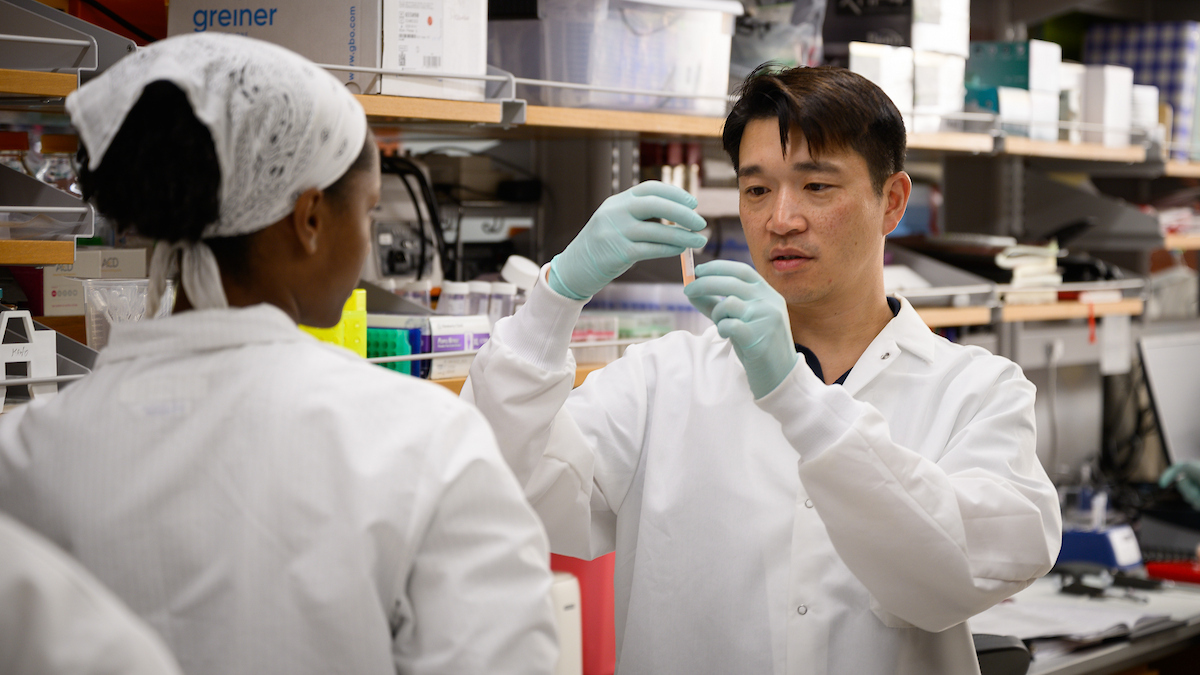Cat on Ninth Life After Battling Nasal Tumor

Turbo has been with Sonja Breda since childhood — his and hers.
Breda was 10 years old and living in Portland when her family adopted Turbo and his brother, Gizmo, rescue cats not quite a year old. They all grew up together in an area bordered by green belts, and have had a few amazing experiences along the way.
When Breda was 15 she heard some rustling noises outside, and when she looked up she saw a coyote with Turbo in its mouth. She rushed outside and shouted at the coyote, “Drop my cat!” Startled, the predator did exactly as ordered, dropping Turbo and running for cover. Amazingly, Turbo wasn’t seriously injured, requiring just a couple of stitches.
Turbo is now 14 — a seasoned gentlemen, says Breda — and is still a character.
“He loves people,” she adds, “and he’s smart. He can lock and unlock doors, and he comes when you call him. Some people call him a dog/cat.”
When Breda moved to Washington, D.C., nine months ago with Turbo, she noticed he appeared to have a drooping eyelid. She took him to a local veterinarian assuming it was an eye infection, and an antibiotic was prescribed. After a couple of months and numerous rounds of antibiotics, Turbo began to have a fluid discharge from his forehead. Breda took him to another veterinarian for a second opinion.

The diagnosis shifted to a persistent sinus infection, and Turbo underwent corrective surgery to open his airways. When that failed to do the trick, Breda took him to yet another hospital, which performed a CT scan and identified the real problem: a cancerous nasal tumor.
One of the veterinarians Breda consulted was a graduate of the NC State College of Veterinary Medicine who knew that NC State Veterinary Hospital had the technology and expertise to best help Turbo: stereotactic radiation therapy, or SRT. In addition, she was told about the availability of a generous grant given to NC State by the Petco Foundation that defrays the costs of cancer treatment in cases when there is a financial need.

Even though it’s a long drive from Washington to the NC State Veterinary Hospital, Breda knew it was her best chance to get Turbo well again. She and Turbo made the trip to Raleigh for an initial visit and three rounds of SRT under the care of Leanne Magestro, a radiation oncology resident, and Hiroto Yoshikawa, assistant professor of radiation oncology.
Breda says the experience at NC State has been incredible.
“They have treated us with great compassion and understanding,” she says, “from the way we were greeted at the front desk to the way the doctors gave me updates over the Thanksgiving holiday, even sending me pictures to show me how he was doing, it was amazing.”
Turbo is now eating well, he’s playful and friendly — and he’s back to his old self.
“I have more time with my sweet boy,” Breda says. “I think he’s on his ninth life now.”
~Steve Volstad/NC State Veterinary Medicine
- Categories:


